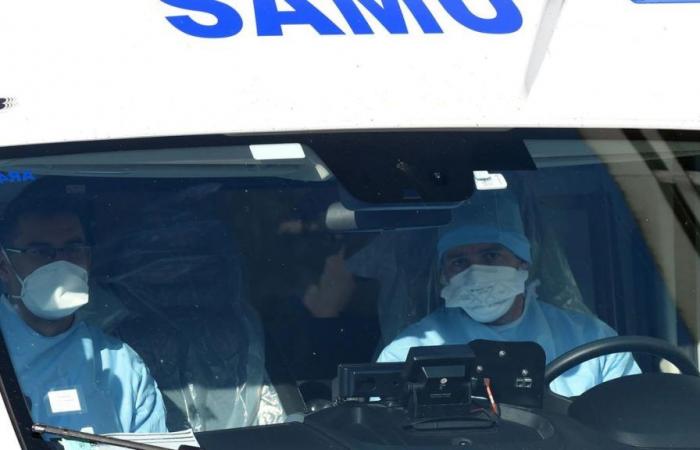More than six years after the events, the Strasbourg emergency services operator who mocked Naomi Musenga on the phone at the end of 2017, a 22-year-old woman who died a few hours later in hospital, is being tried on Thursday for “failure to assist a person in danger”.
Mother of an 18-month-old child, Naomi Musenga died on December 29, 2017 at the Strasbourg hospital after being taken in with “an overall delay of nearly 02H20”, according to a report from the General Inspectorate of Social Affairs (IGAS).
Complaining of severe stomach pain, the young woman contacted the firefighters who transferred the call to the SAMU. The exchange between the two operators was already “in a mocking tone”, noted the Igas.
“I have a very bad stomach ache,” “I’m going to die…” Naomi then whispered, struggling to express herself. “Yes, you’re going to die, certainly one day like everyone else,” the regulator retorted, using “a harsh, intimidating and inappropriate tone in the face of repeated requests for help,” according to Igas. Before hanging up.
At the end of the conversation, the regulator had not forwarded the call to a regulating doctor, contrary to what the procedure required in the event of abdominal pain, and had not asked “any questions” to provide information on “the patient’s clinical condition”, the Igas pointed out.
The case sparked a wave of national outrage after recordings of the phone conversations were released to the media and on social media a few months later.
“No causal link” according to experts
The operator, who was permanently suspended from the Samu, was indicted during the judicial investigation for failure to assist a person in danger.
The investigation had also been opened for “involuntary manslaughter”. But according to scientific expertise, there is “no causal link” between the delay in treating the young woman and her death. Naomi Musenga was already “beyond all therapeutic resources at the time of the first call to the Samu”, the investigation specifies.
The 60-year-old operator will also have to answer only for failure to assist a person in danger, for “not having respected the protocols” of care “and the good practices” of the Samu, according to the prosecution. She faces five years in prison and a fine of 75,000 euros.
Her lawyer Olivier Grimaldi contests these proceedings and also regrets that his client’s employer or superiors were not prosecuted.
“We can only be surprised that she is the only person accused in this case,” he told AFP in May. “In a hospital, there is a chain of responsibility. Many should have faced up to their responsibilities, not left a category C agent alone to face the events that took place.”
“I was thinking about nothing else,” says Naomi’s sister.
The victim’s family, for their part, expressed their satisfaction at seeing this procedure lead to a trial. “We are waiting for this, because we have to move on. For several years, I have not had a decent life, I thought about nothing else all the time,” said Louange Musenga, the victim’s sister.
However, she also regretted that the operator was the only person sent to court. “There is a whole chain of responsibility that has not been identified,” she said.
In fact, the Igas report had pointed out “serious dysfunctions” within the Samu 67 and deplored the fact that no “serious adverse events” had been reported to the Regional Health Agency. Its director had resigned.
In July 2019, 18 months after the death of Naomi Musenga, the medical regulation assistant (ARM) diploma was created, now mandatory for working in emergency medical aid call regulation centers.
The diploma provides for 11 months of training, half of which takes the form of practical internships.






